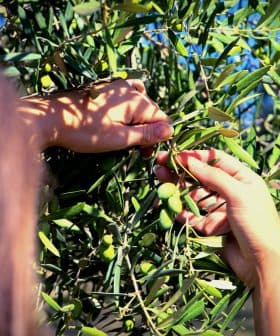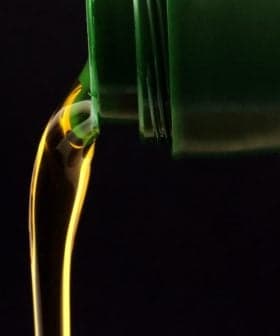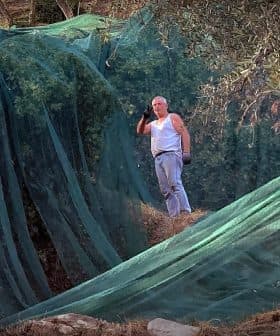Six Sentenced to Jail in 'Operation Arbequino'
Francesco Fusi and five colleagues were sentenced in Italy for commercial fraud and criminal conspiracy to sell olive oils "obtained through illicit mixing."
Francesco Fusi, former owner of Valpesana olive oil company, was sentenced to four years in prison in Italy for selling fraudulent olive oils obtained through illicit mixing; multiple employees also received sentences and fines. The operation was uncovered in 2011 by Italy’s Financial Police and the court’s verdict confirmed fraudulent practices of blending, with defendants ordered to compensate the National Consortium of Olive Growers.
The former owner of the olive oil company Valpesana, Francesco Fusi, was sentenced in Italy to four years in prison for commercial fraud and criminal conspiracy for selling olive oils “obtained through illicit mixing with raw materials of an inferior category or other geographical origins.”
This sentence is proof that the ‘Save Italian Olive Oil’ law is defending consumers and the quality of Italian cuisine.
Italy’s Financial Police began the operation in 2011, when the prosecutor of Siena, Aldo Natalini, launched an investigation following a review of the company’s financial records. Documents revealed fraudulent practices of blending confirmed by the court’s verdict.
In addition to the stiff sentence handed down for Fusi, the company’s salesperson, Stefano De Gregorio, was sentenced to one year and 10 months; the administrative director Paolo Vannoni and an administrative employee, Lucia Sbaragli, were condemned to 1 year and 8 months with suspended sentences; and employees Paolo Alessi Innocenti and Alessandro Volpini received sentences of nine and five months, respectively.
An officer responsible for inspection and sanctions tasks, Sergio Carbone, was acquitted of charges that he violated professional secrecy.
The court imposed an administrative fine of €100,000 on the Monteriggioni (Siena) company and the seizure of over €300,000 in assets. The defendants were ordered to compensate the plaintiffs, the National Consortium of Olive Growers (CNO).
Acting as an intermediary between producers and distributors, Valpesana was found to have declared as 100 percent Italian extra virgin olive oil a deodorized mixture of virgin and lampante olive oils from Greece, Tunisia and Spain. The operation was named ‘Arbequino’ for the Spanish variety found in the illegal mixture.
The grounds for judgment must be filed within 90 days; meanwhile, lawyers for the defendants have announced that they will appeal the court’s decision.
“A stiff sentence like this is part of a trend in Italy towards actually bringing oil criminals to court and giving them punishments with real bite,” investigative author Tom Mueller told Olive Oil Times about the judgment.
“It’s great to see Italian legislators, prosecutors and investigators enforcing quality standards in olive oil, and other foods. This sentence is proof that the ‘Save Italian Olive Oil’ law of Colomba Mongiello, and the determination of prosecutor Aldo Natalini and his investigators, is defending consumers and the quality of Italian cuisine,” Mueller said.
“Why can’t food fraud be taken seriously, and punished adequately, in the United States?” he added.









